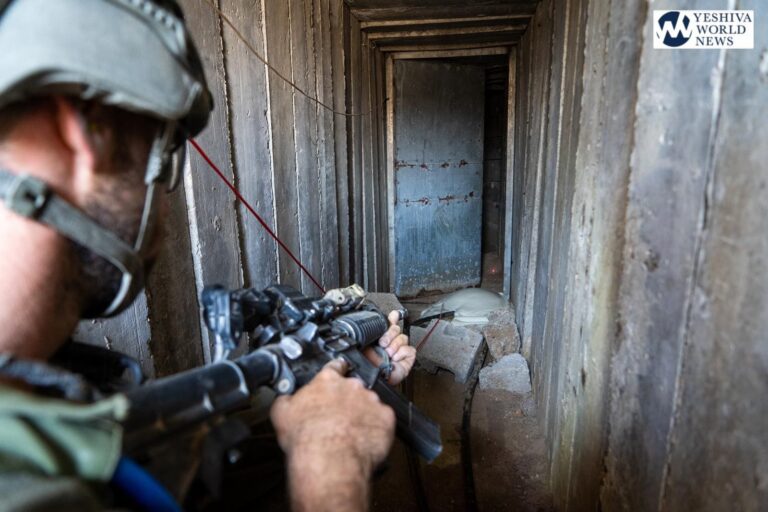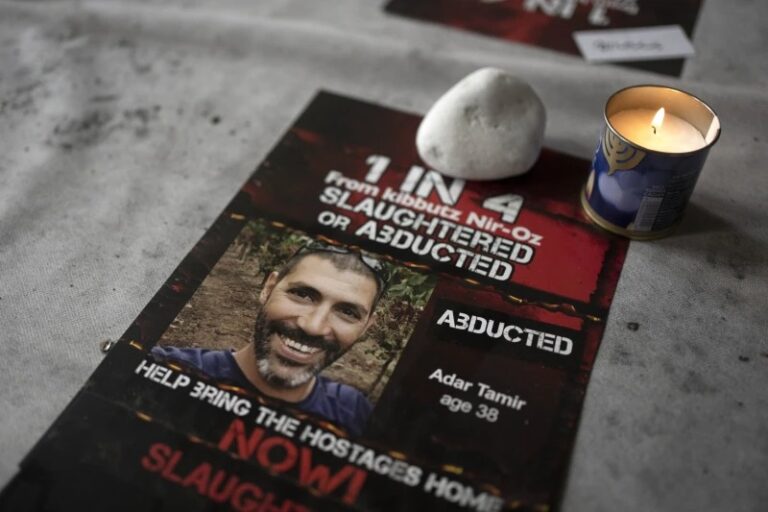 By Rabbi Yair Hoffman for the Five Towns Jewish Times
By Rabbi Yair Hoffman for the Five Towns Jewish Times
A horrific incident in Boro Park brings to mind an important question we need to ask ourselves.
The incident occurred when a nine year old Chassidic child, collecting money for his yeshiva was lured into a van. The man had promised the young boy five dollars if he would enter the van. The man then exposed the child to an unspeakable act, rachmana litzlan. Boruch Hashem, the man was arrested last Friday.
The question we need to ask is: Should we really be having our children raise funds for their Yeshiva or for any other organization for that matter?
The whole concept raises no less than five questions. All of them would seem to be important questions. Let’s look at the issues one by one.
TRAFFIC ACCIDENTS
#1: Do the charitable organizations take into account the risks of traffic accidents? Traffic accidents happen all too often, and children are not always careful. It is a grave responsibility to have young children travel door to door, block to block, and crossing street after street. Even children trained in looking both ways before they cross sometimes make mistakes when they are thinking about other things or when they are fussing with an enveloped or counting money. It happens.
UNWHOLESOME PEOPLE
#2: What about other types of dangers? This recent incident happened with a frum man from Williamsburg. Do the organizations tell the children what to do in these types of situations? Do they train them not to get into a car? Often not much can be done in such circumstances either.
INTERRUPTING TORAH STUDY
#3: We must ask whether it is appropriate for these organizations to recruit children to do their work for them in the first place. The Gemorah in Shabbos (119b) tells us that we do not stop the study of Tinokos Shel Bais Rabban even for the building of the Bais HaMikdash. Certainly this should be true of raising funds for the Yeshiva or for another organization. Raish Lakish is even quoted there saying that the world does not exist – except for on account of the sound of children studying Torah. Is it appropriate for the Yeshiva or the Tzedaka organization to take off school time to explain the program to them? It seems that this is the type of question that should be reserved only for a renowned Posaik – one who is apprised of all the details concerning when and where the children are out going collecting as well.
HOMEWORK TIME
#4: Is it such a simple matter that so many young children can afford to take off home work time? While it is true that it is the parents’ responsibility to train their children in Mitzvos and in giving and perhaps even soliciting charity when necessary, it might be more appropriate for the parents to involve their children with them – in their own charitable acts. Young children going collecting off on their own – is not the ideal method of teaching our children about Tzedakah.
TRUSTING THE CHILD
#5: May a child be trusted with the funds in the first place? Tosfos in Kesuvos (28b) writes that a child is believed neither to forbid nor to permit something. The testimony of a child, according to Tosfos, is merely given the halachic status of a Kol – a rumor that should be investigated.
We also find a halacha in regard to Tevilas Kailim, the immersion of vessels. Although if a child did put the vessels in a Mikvah to immerse them, the immersion is valid, the child is not believed to say that he had immersed them (see Yoreh Deah 120:14). The explanation is that on a biblical matter a child does not have legal believability.
VIEW OF RAV SHULCHAN ARUCH
In Yore Deah chapter one there is a discussion as to whether a child is believed to say that an animal was slaughtered properly. Although generally speaking a child is not believed, (See Shach 1:27 citing the Raah and the Maharshal), there are situations when a child is believed. For example, the Rav Shulchan Aruch (the first Lubavitch Rebbe in YD 1:42) writes that when there is a Chazakah (a legal assumption) that a child will not purposefully invalidate something – the child is believed. His example deals with sending an animal with a child to the slaughterer. Another example he cites is when a child is sent to ask a Rav a question as to the Kashrus of an item. Since the child is fearful that they will check his version of the answer with the Rav, the child is believed. The Rav Shulchan Aruch qualifies it further by saying that it is only a child who is known to be honest that may be relied upon. According to the Rav Shulchan Aruch then, one may trust the child with funds only if one knows him to be honest. This view is also the opinion of the Simla Chadasha (1:35). Indeed, the Simla Chadasha writes that one should ascertain whether the child’s actions are bad before one believes him.
VIEW OF ARUCH HASHULCHAN
The Aruch HaShulchan (Yore Deah 1:48), however, seems to understand things slightly differently. He limits the Talmudic notion of the non-believability of a child to those of difficult situations. However, sending something through a child is a rather simple matter, and he writes that a child would be believed under such circumstances. He provides the caveat that the child cannot be too young, however. [The Mogen Avrohom (OC 399:7) writes that a child is believed on the Kashrus of an item if it is “beyado” within his ability to, in fact, make it kosher. This, however, does not bear on our case as to whether to believe them or not because “beyado” does not apply here.]
So regarding this last matter, if one clearly knows that the child is trustworthy, one would be permitted to give him the money. If one does not know the child, it seems that there would be a debate between the Aruch HaShulchan and the Rav Shulchan Aruch as to whether the child is to be trusted, and there is a concern of Lifnei Iver – providing a temptation for the child to take the money for himself. If one knows that the child does do evil things, then it would be a problem of Lifnei Iver to give him the money.
CONCLUSION
It is this author’s view that children should not be used to collect Tzedakah either for the Yeshiva nor for other organizations. It is also the author’s belief that one would need the parents’ permission as well. Of course children should be trained in Tzedakah, but this should be done under the tutelage of the parents – and not by the Yeshiva administration. The incidents of danger are now so commonplace rachmana litzlan – that it is questionable why this is still done. This author consulted with a renowned Posaik who agreed with the first two points – that it should be stopped. Of course each mossad and parent should consult with their own Rav or Posaik.
The author may be contacted at [email protected]






7 Responses
What a terrible terrible incident.
As usual, Rav Hoffman makes a simple and elegant case on behalf of what should be common sense for any parent. The world has changed and is not the same place it might have been a generation or two ago in terms of the risk to children, even under close supervision, who are allowed to go from door to door collecting tzadakah. Maybe in a bungalow colony or within a block or two from home in KJ or 5T but otherwise, the degree of sakanas nefesh is mamash too great to consider. There are other ways to teach them the importance of tzadakah
I completely agree with this article. I always felt uncomfortable sending children out to collect and hearing speeches in which leaders of organization beg children to collect x amount of money. Tzedaka should be taught in other ways for example chessed programs or via mail.
so your not going to let your kid borrow something from a neighbor or go to the supermarket?
There is a difference between borrowing something from a neighbor or going to the supermarket and collecting money from strangers.
Rabbi Hoffman did not discuss the fact that the child may not be a valid shomer of the money. Although, the vast majority of children collecting are scrupulously honest, however they may be careless and misplace or lose the money. Some of them may not realize that they can’t take or use the money.
The basic halacha is that tzedaka nigvis beshnayim and even a single adult collecting is not so simple. Rabbi Hoffman is right. For this and many other reasons children should not collect tzedaka
A stranger could pull the child into his house, G-d forbid.
But in my very frum building in a very frum area of Jerusalem, children do go around collecting in their own building as the “building representative” for whatever cause it is.